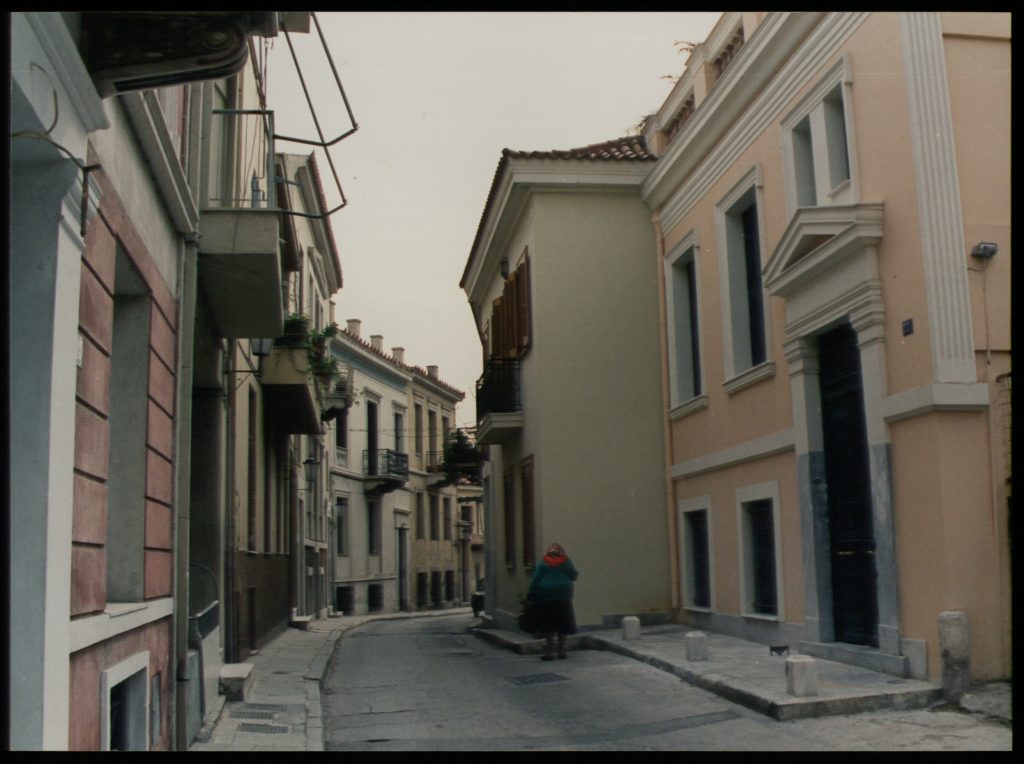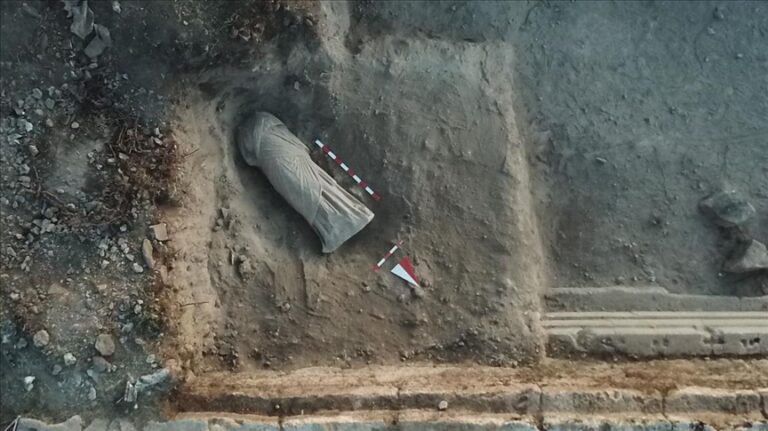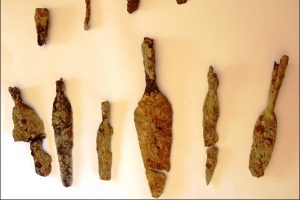A female statue, estimated to be around 2,000 years old, was unearthed on September 21 during excavations led by the Turkish Ministry of Culture and Tourism in the ancient Greek city of Blaundus. The statue, believed to date back to the Roman period, was discovered at a depth of approximately 1.5 meters.
Measuring 1.9 meters in height, the statue is missing its head and arms and was found in the western part of the altar site dedicated to the ancient Greek goddess Demeter, located within the Ulubey district of Uşak Province, Turkey. Excavations in the area have been ongoing since 2018, under the auspices of the Uşak Archaeology Museum. The discovery of this particular statue resulted from excavations that commenced on July 1.
According to Provincial Director of Culture and Tourism Sabri Ceylan, in remarks made to Anadolu Agency, the statue will undergo restoration, which is expected to last about 5 to 6 months, after which it will be displayed in the Uşak Archaeological Museum.
Ceylan also highlighted the previous discovery of two additional statues in the same area in 2021, stating that the Temple of Demeter serves as both the center of the city and a spiritual site, thus considered the “heart” of the city. Finally, he expressed that he and his team were expecting that “surprises” and discoveries would emerge soon.
The Ancient City of Blaundus
Blaundus was a Greek city founded during the Hellenistic period (between the death of Alexander the Great in 323 BC and the death of Cleopatra VII in 30 BC) and was established by soldiers of the Seleucid Empire under the Macedonian general Seleucus I Nicator, a successor of Alexander the Great following the division of the Macedonian Empire.
The city is also known as Mlaundus, a name derived from the discovery of Greek coins inscribed with this spelling. Blaundus is located approximately 40 kilometers from the city of Uşak and about 200 kilometers east of İzmir.
While many larger inland cities of Asia Minor, such as Sardis and Hierapolis, have been systematically excavated, smaller cities like Blaundus remain largely unexplored, despite being in relatively good condition. Blaundus was inhabited from the Hellenistic to the Byzantine period, but it appears to have been definitively abandoned during the Middle Ages.









